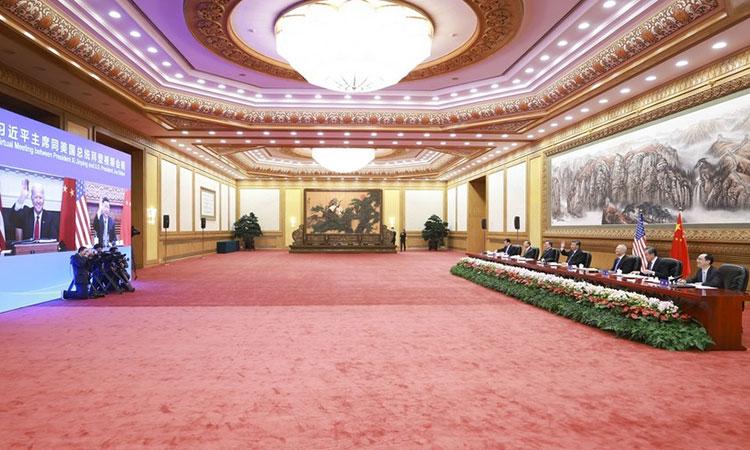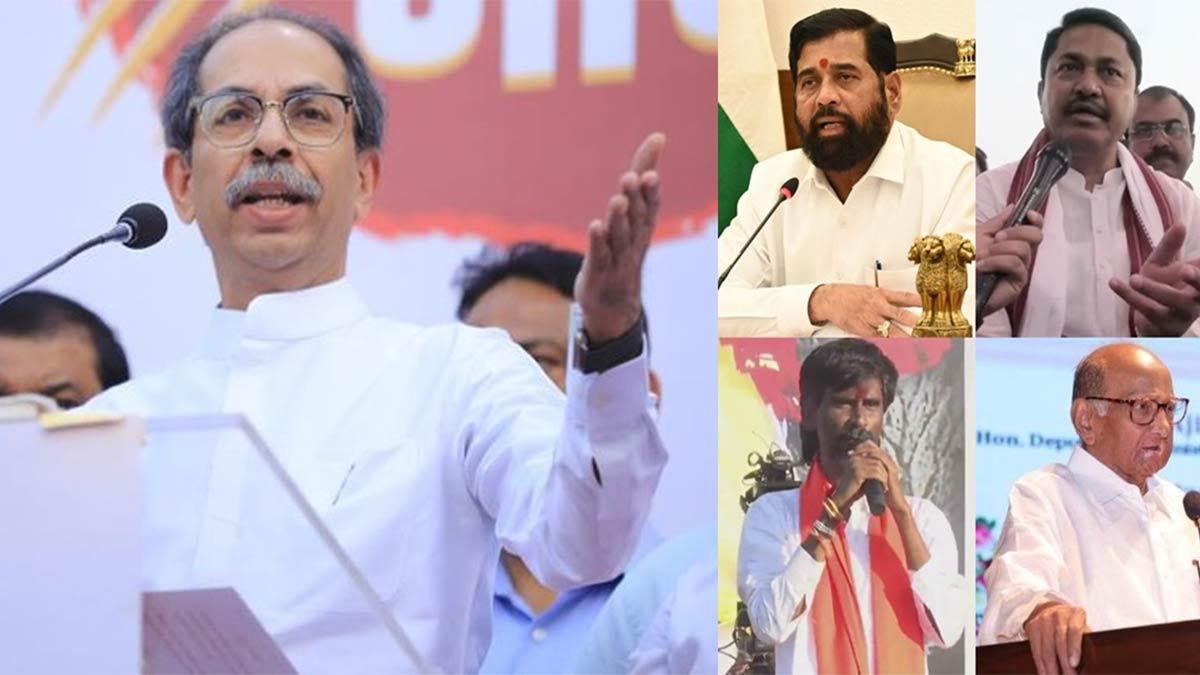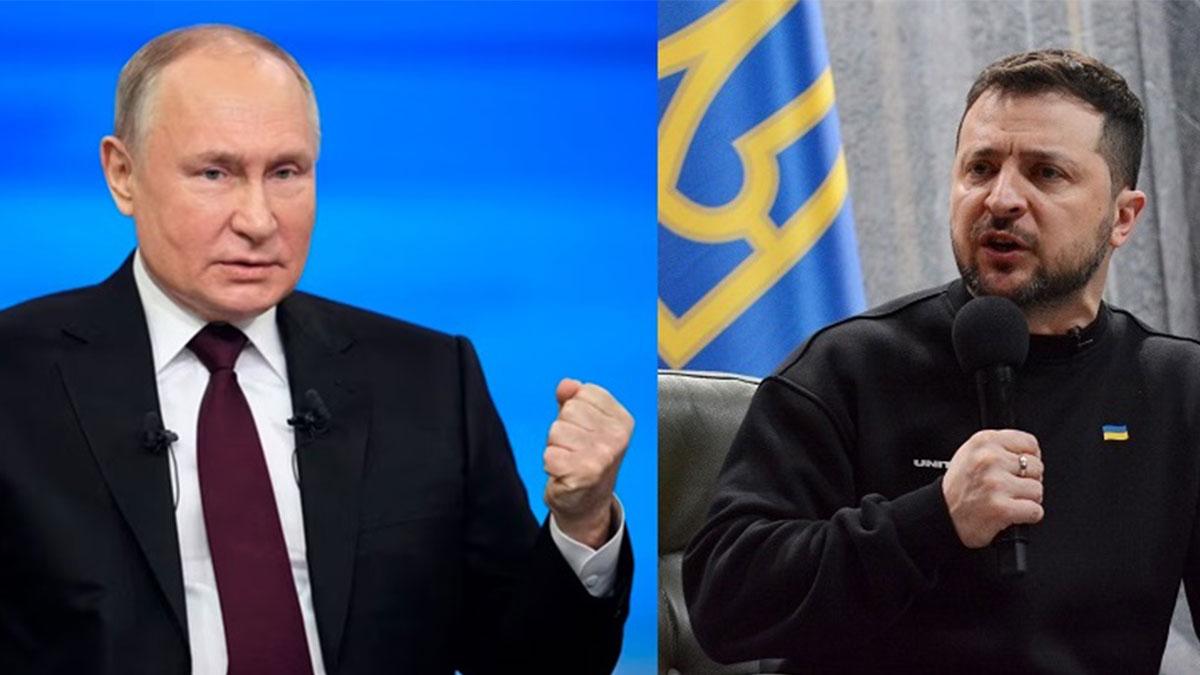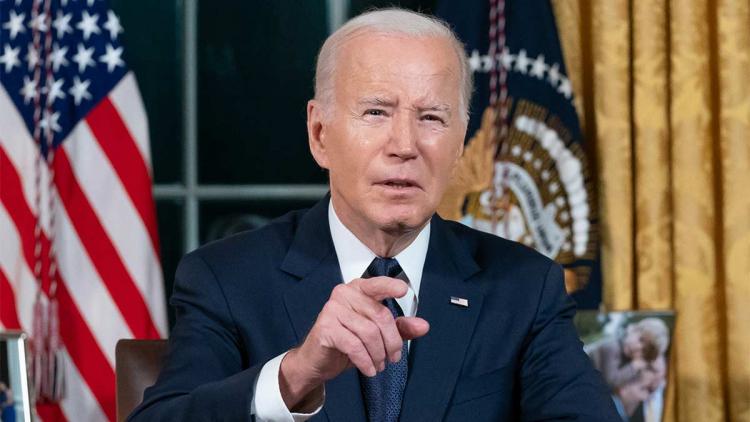Guardrails were invoked at a vaunted summit between US President Joe Biden and Chinese leader Xi Jinping which saw the idea of "global village" spring up in marathon talks that kept staring at closure but didn't reach one.
In pithy symbolism not lost on the world, the three-and-a-half hour virtual summit was beamed from the Roosevelt Room of the White House and in the Great Hall of the People on the other side of the Pacific.
Global village is a concept propounded by German philosopher Friedrich Nietzsche and is even mentioned in Hindu texts as Vasudev Kutumbakam, which translates to "the world is a family."
Also Read | As snowstorm hits, is it a COP-out for China in Glasgow?
Franklin Roosevelt was the 32nd president of the US who took over the presidency during the Great Depression -- a period of intense economic tumult, and the Chinese legislature -- standing on Tiananmen Square -- are steeped in historical symbolism.
At the outset, Xi addressed Biden as "my old friend", apparently trying to strike a camaraderie with the 78-year-old American leader often given to mercurial exchanges. There was a tepid exchange later on Taiwan, which is at the heart of a protracted conflict between the two superpowers.
State media reported Biden as telling Xi that as the world's two largest economies and permanent members of the UN Security Council, China and the US need to increase communication and cooperation, run their domestic affairs well and shoulder their share of international responsibilities. "They should work and work together to advance the noble cause of world peace and development," Xi told Biden.
Also Read | COP26: Nations, businesses commit to create sustainable agriculture
"Humanity lives in a global village, and we face multiple challenges together. China and the US need to increase communication and cooperation," added the leader known for his grit and political acumen in a country often in the throes of controversy due to its geopolitical and strategic stance. The ascendant Chinese economy has seen recent headwinds due to power shortages and a coal crisis.
Biden is on a sticky wicket on his own turf and has seen his popularity plummet.
Dr Jairo Lugo-Ocando of Northwestern University in Qatar believes the summit was full of significance. "It was a serious attempt to de-escalate tensions in that region. Let us remember that summits are only called as a last resort. They create a direct channel of communication. Over the past years, China has raised the heat on Taiwan and has pursued a policy to reaffirm its territorial presence in all of Asia."
The problem is that summits always don't work. The encounter between Donald Trump and Kim Il Jung is an example, said Lugo-Ocando, who has authored several books.
"I think a summit is better than no summit at all," said a senior Chinese journalist not willing to be named.
Chef Eric Wong of Singapore, who heads a reputed consultancy in the city state, has a culinary take on Sino-US relations. "Many Chinese have opened restaurants in the United States and the ingredients they use are good. But it doesn't bring out the real flavour as the spices and veggies are not always Chinese," said Eric.
The trade war between the superpowers had hobbled soybean imports from the US, including several farm products.
"I hope the talks lead to better culinary relations," said the senior food and beverage expert.
Global Times Editor in Chief and famous Communist Party of China member Hu Xijin said in his famous "Hu Says" video: "this virtual meeting marks an attempt to change the way they (US and China) communicated."
The virtual summit that drew headlines across the world and attracted millions of eyeballs on social media didn't go without an ubiquitous "Chinglish"(Chinese English) phrase played in Xi's opening remarks: It's the first time for us to meet virtually, (although) it's not as good as face to face..."
You can take the Chinese out of Chinglish but you can't take the Chinglish out of the Chinese, said an expat teacher in China requesting anonymity.
Summit-level parleys use diplomatic language. We are meeting virtually for the first time would have been better put as "we are meeting virtually for the first time..."


















